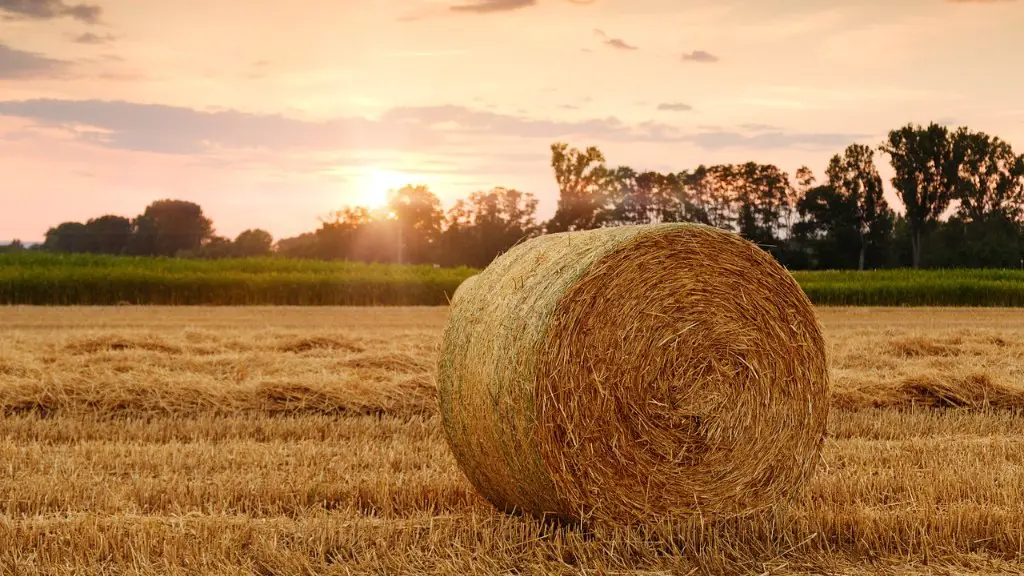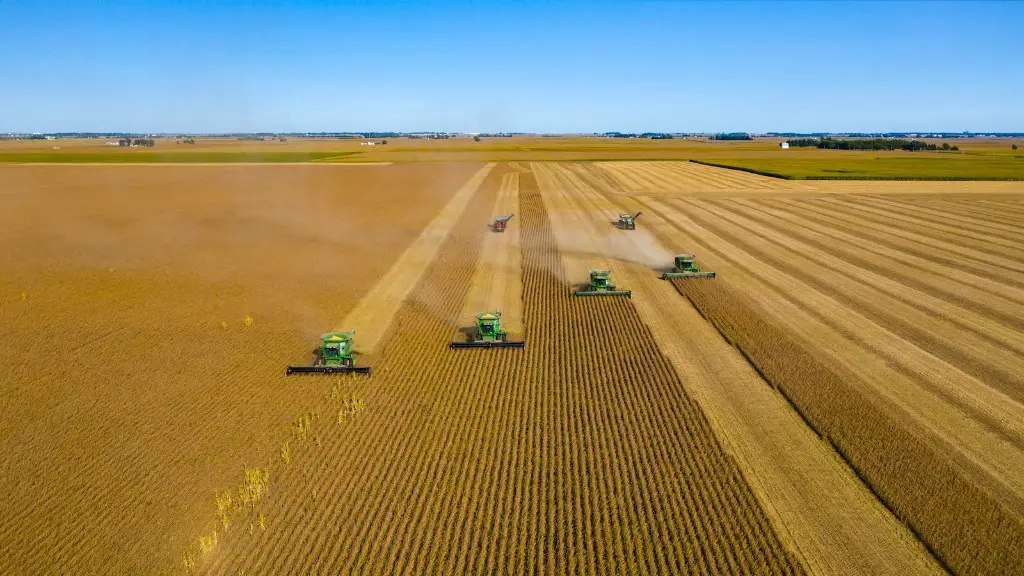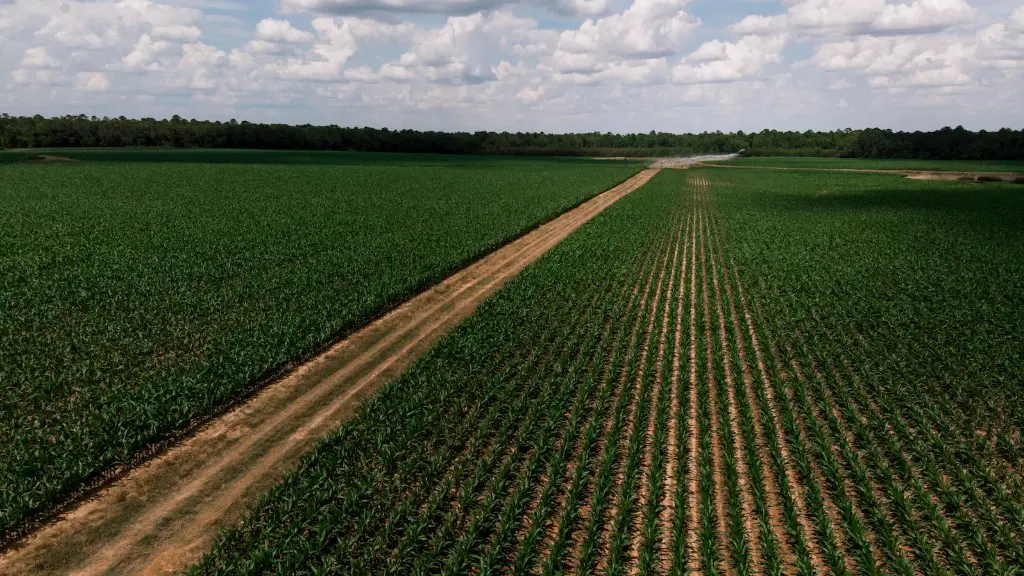The Department of Agriculture plays an important role in ensuring the health and safety of all food products and farm commodities. Its job is to protect farmers and consumers alike, by regulating pesticide use and developing food safety standards. Responsibilities of the department include the following:
Regulating Pesticides: The Department of Agriculture is responsible for regulating the kinds of pesticides that can be used on food crops. By determining which types of pesticides are acceptable and which are not, the Department helps to protect both the public and agricultural workers from exposure to hazardous chemicals.
Food Safety Standards: The Department is responsible for developing, implementing, and enforcing standards for food safety and related practices. This includes standards for handling, storing, and transporting food, as well as the food safety methods used in processing and manufacturing. This helps to ensure that food products are safe for consumption by the public.
Inspection of Food Products: The Department of Agriculture is responsible for inspecting food products to ensure that they meet safety standards and are not contaminated. This includes inspecting farms and processing plants, as well as the storage and transport of food products. This helps to protect both consumers and farmers from potential contamination.
Promoting Sustainable Agriculture: The Department helps to promote sustainable and healthy agricultural practices by providing education and research on topics such as soil health, water conservation, crop diversification, and sustainable energy. This helps to promote healthier and more productive farms and agricultural products.
Assisting Agricultural Exports: The Department of Agriculture is responsible for assisting farmers with the sale of their agricultural products to foreign countries. This helps to boost the economy, by increasing the export of agricultural products to international markets.
Research and Development: The Department is responsible for conducting research and development in the field of agriculture. This includes researching new methods and technologies for agriculture, as well as developing policies and programs to promote sustainable and healthy agricultural practices.
Regulation of Pesticides
The Department of Agriculture is responsible for regulating pesticide use in the US. This includes determining which types of pesticides are permissible and which are not, in order to protect the public and agricultural workers from exposure to hazardous chemicals. Additionally, the Department must ensure that pesticide use is properly monitored and enforced, through methods such as federal inspections, product recalls, and fines.
The Department is also responsible for public education and outreach on the many dangers and concerns of pesticide use, such as the effects on human health and the environment. This helps to make sure that the public is aware of the risks of using certain types of pesticides, as well as any safety protocols that must be followed.
In addition, the Department works to ensure that all pesticide labels contain accurate information, and that all consumers are aware of the potential hazards associated with their use. This helps to protect the public from the potential health risks of pesticide exposure.
Finally, the Department is responsible for making sure that all pesticide manufacturers adhere to their compliance standards, through the enforcement of rules and regulations. This helps to ensure that all pesticides sold in the US meet the highest safety standards.
Food Safety Standards
The Department of Agriculture is responsible for developing and enforcing standards for food safety and related practices. This includes rules and regulations for the safe handling, storage, and transport of food, as well as the food safety methods used in processing and manufacturing. These standards help to ensure that the public is protected from any potential contamination of food products.
In addition, the Department must ensure that all food products meet safety standards before they can be sold to the public. This includes safety checks of all food products, inspections of farms and processing plants, and periodic testing of food items. All of these measures help to protect both farmers and consumers from food-borne illnesses.
The Department is also responsible for educating the public on food safety issues, such as food preparation and storage techniques, as well as proper nutrition and food labelling. This helps to ensure that all consumers are properly informed about the potential health risks associated with inadequate food preparation and storage.
Finally, the Department is responsible for responding to any food safety related incidents. This includes providing guidance and support to those affected, as well as investigating any health-related complaints that arise.
Promoting Sustainable Agriculture
The Department of Agriculture is responsible for providing education and research on ways to promote sustainable and healthy farming practices. This includes initiatives such as soil conservation, water conservation, crop diversification, and sustainable energy. These initiatives help to ensure that farmers use techniques that are beneficial to the environment, and that ensure healthy and productive crop yields.
The Department’s research and education also helps to inform farmers on the importance of crop rotation, the use of compost and manure, and other sustainable farming methods. This helps to promote healthier and more productive farms, and ultimately healthier and more nutritious agricultural products.
In addition, the Department helps to promote the use of renewable energy by providing resources and incentives for those wishing to switch to more sustainable energy sources. This helps to reduce the use of fossil fuels and protect the environment.
Finally, the Department is also responsible for providing financial support to farmers who are investing in sustainable agriculture practices. This helps to ensure that more farmers have access to the resources they need in order to meet their sustainability goals.
Assisting Agricultural Exports
The Department of Agriculture is responsible for assisting farmers with marketing their agricultural products to foreign countries. This helps to strengthen the US economy by increasing the export of agricultural products to international markets.
The Department also provides assistance to US farmers who are looking to expand their operations abroad. This includes providing assistance with the legal and regulatory issues associated with international agriculture, as well as access to resources and technical advice.
The Department is also responsible for promoting US agricultural product exports to other countries. This includes marketing US products and building relationships with foreign governments and private buyers.
In addition, the Department works to ensure that foreign markets are safe and fair for US agricultural products. This includes monitoring foreign markets to ensure that US products are not unfairly disadvantaged or excluded from foreign markets.
Finally, the Department is also responsible for providing financial assistance to US farmers in order to help them export their agricultural products. This helps to ensure that US farmers have access to the resources they need in order to increase their export sales.





